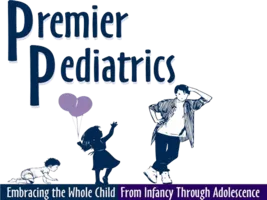Common Misconceptions About Early Childhood Development Assessments

- posted: Aug. 13, 2024
Performing development assessments during early childhood helps identify potential delays in various areas, including physical, emotional, social, and cognitive. If a developmental delay is present, early intervention measures can be taken to help children overcome challenges. The experienced providers at Premier Pediatrics in Brighton, CO, perform early childhood development assessments and develop treatment and intervention plans to help kids overcome delays.
Developmental Delays
Infants, toddlers, and young children reach many different milestones as they grow and develop. Examples of common milestones for babies include first words, sitting up without support, crawling, and walking. Pediatric doctors help monitor children’s progress in reaching major milestones in various areas, including both fine and gross motor skills, speech, language, intellect, cognition, and social and emotional skills.
A developmental delay occurs when a child falls behind the typical progression of development in a particular area. Development might slow down, stop, or even reverse. When a delay is suspected, pediatricians perform assessments to identify the exact delay and then develop an intervention plan to help the child overcome it.
Misconceptions and Facts About Developmental Assessments
Approximately one out of four kids between the ages of birth and five years is at risk for a delay in development, according to the U.S. Department of Health and Human Services. Development assessments are used to identify these delays so they can be addressed right away. However, some parents might feel apprehensive about having their child undergo a development assessment.
Some common misconceptions about early childhood development assessments include:
- Myth: Assessments are unnecessary because they cannot help my child overcome delays in development. In reality, assessments can help kids overcome delays by prompting interventions at an early age.
- Myth: My child will be labeled negatively if an issue is identified during the assessment. The truth is, that assessments ensure children receive the assistance they need to develop and thrive.
- Myth: The assessments will be too overwhelming and stressful for my child. In reality, most assessments can be completed quickly and kids do not find them stressful.
- Myth: If my child misses a milestone, there must be a developmental delay. The truth is that each child develops at their own pace and might reach certain milestones later than other kids, with no long-lasting delays in development.
- Myth: My child has no obvious signs of a delay so an assessment is not needed. The American Academy of Pediatrics (AAP) recommends all kids undergo developmental screenings at certain ages as part of their regular wellness checkups. Screenings help reveal whether additional development assessments are needed.
At our pediatric office in Brighton, CO, we believe early childhood development assessments are helpful tools for identifying areas of concern so steps can be taken to help children overcome potential delays. Early intervention leads to better outcomes for kids and helps improve development.
Development assessments are helpful tools for identifying potential development delays so steps can be taken to overcome them. Schedule an appointment with one of our pediatric providers to learn more about early childhood development assessments by calling Premier Pediatrics in Brighton, CO, at (303) 655-1685. For your convenience, we are also located in Commerce City, CO.
